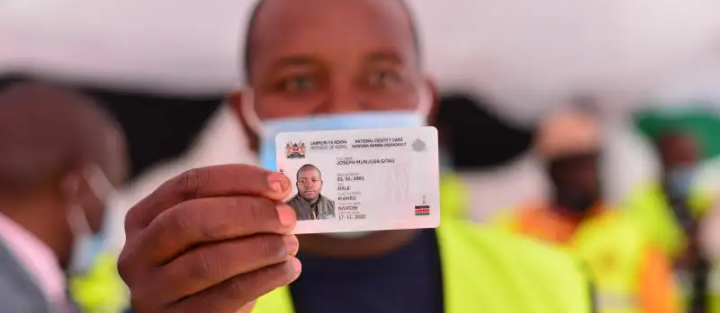
To Curb Tax Evasion, Gorv’t Intends To Replace KRA PIN With Huduma Number
The controversial biometric identification scheme or Huduma Namba will replace the Kenya Revenue Authority (KRA) PIN in changes to the law that are designed to check tax cheats.
The government-backed Huduma Namba Bill, 2021 amends the Tax Procedure Act to make biometric ID the key number for identifying taxpayers.
This means that children offered the Huduma Namba ID will automatically be listed as taxpayers once they attain 18 years and required to file returns annually irrespective of their income status.
It also means that all adults will be required to register with the KRA, offering the taxman a larger pool of people than the 5.5 million that it has netted through the returns.
Filling tax returns has emerged as one of the taxman’s preferred ways to net tax cheats and
grow the income tax segments amid struggles to meet collection targets.
The State is seeking to net individuals who have evaded paying taxes by requiring that the Huduma Namba serves as KRA personal identification number (PIN).
The number of taxpayers who filed returns in the year to June were 5.5 million while official data shows that Kenyans above 18 years are 25.64 million.
“Huduma Namba assigned to an individual under the Huduma Act, 2021 shall serve as PIN for the purpose of tax law,” the Bill, which is set for formal introduction in Parliament this afternoon states.
If it sails through, the KRA will be required to activate tax obligation of every citizen above the age of 18 years who is not registered as a taxpayer.
The law requires anyone with a PIN to file tax returns irrespective of their employment status.
Children who have enrolled into the National Integrated Identity Management System (NIIMS) or Huduma Namba will by default be registered as a taxpayer upon hitting 18 years.
The Bill requires that upon enrolment of a newborn or any other child, a certificate of birth containing Huduma Namba shall be generated from the NIIMS database.
“On completion of initial enrolment of resident individuals under the Huduma Act, the Commissioner (KRA) shall activate tax obligation of every resident individual above the age of eighteen years not registered as a taxpayer,” the Bill states in consequential amendments to several Acts of Parliament.
Kenyan adults will need this new ID to access government services, such as getting treatment at State hospitals, marrying or filing tax returns.
The government suffered a setback after the High Court declared this biometric ID scheme illegal and ordered the State to make it compatible with new data protection laws.
This is what has prompted the raft of changes to the Huduma Namba Bill, 2021 to include the replacement of the KRA PIN.
Sensitive information such as contact details, fingerprints and a person’s profession was collected in 2019. The idea was to integrate all the data the government has about an individual on various systems under one overarching ID number. The judges ruled the move was constitutional as long as that information was properly protected.
As extensive personal details would be available at the click of a button, they said that Kenyans would be at risk of suffering irreversible damage if the information was misused.
The Bill now ropes in the provisions of the Data Protection Act in the processing of personal data under Huduma Namba.
Under the Data Protection Act, a public officer who shares personal data with a third party without permission risks a fine of Sh500,000 or two years in jail or both.
The Bill imposes a Sh5 million fine or five years imprisonment to individuals who unlawfully and intentionally disclose and disseminate Huduma Namba information.
Faced with missed revenue targets, the taxman has in recent years stepped up the war on tax cheats following a presidential directive in November 2018 to investigate wealthy individuals whose lifestyles did not match their tax filings.
The KRA is racing to bring more people into the tax bracket and curb tax cheating and evasion in the quest to meet targets.
The KRA last year said that its intelligence unit had identified wealthy individuals and businesses holding Sh259 billion in unpaid taxes, setting the stage for property seizures, prosecutions and other enforcement actions.
The onslaught on tax cheats received a major boost last year after the High Court ruled that the taxman had powers to compel taxpayers to provide details of wealth they failed to disclose in their annual tax returns.
The Bill requires the KRA and other agencies to validate foundational data of individuals under their custody with the NIIMS database.
“Upon the commencement of this Act, any agency responsible for a matter set out shall validate foundational data of individuals under their custody with the NIIMS database-registration of taxpayers.”
The Bill defines foundational data to include an individual’s full name, date of birth, place of birth, gender, photograph, biometric data and nationality.
Those who give false information or make false declarations for Huduma Namba registration also face Sh3 million fine or three years in prison.
#story courtesy
